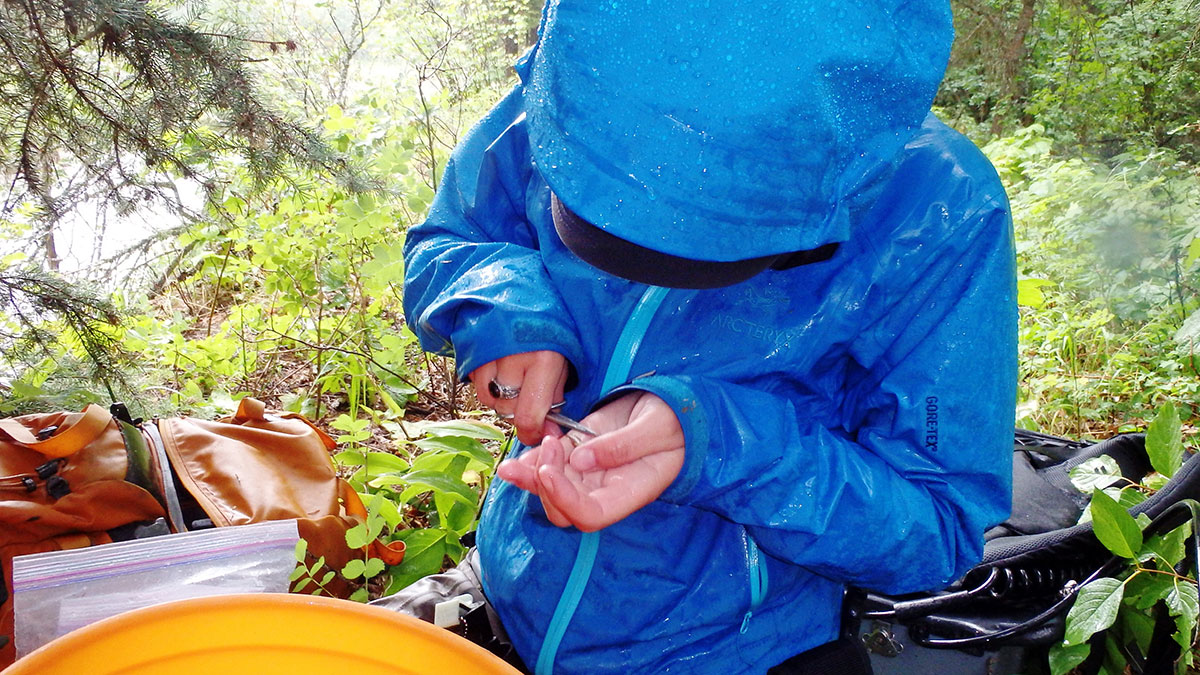 Supplied
SuppliedWhen they set out from Fernie, B.C., Jonathan Ruppert and Tyana Rudolfsen were expecting an ordinary day of examining temperature recording boxes on the Flathead River. Instead they might have saved a life.
Rudolfsen, a master’s student in conservation biology, and Ruppert, a postdoctoral research associate in the same lab, were about two hours from Fernie on a disused logging road. Rudolfsen and Ruppert, whose research involves the sculpin fish, were about 50 metres from the site of a water temperature monitoring box when they spotted a man off to the side of the road.
The man, who was holding a foil emergency blanket over his head, began walking towards the research truck. Even from a distance, Rudolfsen could tell he was in some form of distress.
“He walked towards us, but it was in a really zig-zagging, unsteady manner,” Rudolfsen said.
Upon talking to the man, the two researchers discovered that he was a hunter, who had been separated from his party and lost for more than a day and a half without food.
“(Ruppert) gave the man, whose name was Garth, a spare Gatorade we had in the truck,” Rudolfsen said. “After that, he became much more aware and communicated more easily.”
After explaining to the researchers that he had been trying to signal a search and rescue plane when he saw their truck, the hunter and researchers motioned to the plane in an effort to call off the search.
“We found out that he was pre-diabetic,” Ruppert said. “When we found him, he was in really bad shape. I (as a non-diabetic) might be able to last for days in the wilderness with only water, but when we found him, he probably had 12 to 24 hours left.”
The researchers proceeded to give the man first aid for exposure and low blood sugar, and drove him the two hours back to his home in Fernie. Once there, they waited until they had ensured the search and rescue party was called off and the hunter was safe.
The part of the day Ruppert remembered most vividly, however, was how close they were to not finding the man.
“We were planning on being in that spot for literally five minutes,” Ruppert said. “If he had wandered off or we had covered that site the day before, we would have missed him.”
By the time they discovered him, the hunter reported only being able to be active for 30 minutes at a time before having to rest at least two hours. The seriousness of the situation hit home for both the researchers, but so did the knowledge that they were prepared for just such an incident.
“We realized while helping him that U of A field students are super well prepared to handle these situations,” Ruppert said. “If we didn’t have the training, first aid supplies, food, or spare gas that we did, the situation might have turned out differently.”
Both Rudolfsen and Ruppert also pointed out how the situation highlights the importance of thinking about safety how situations can take a turn for the worse. Despite the ordeal and the whirlwind of media coverage that has followed, Rudolfsen said she was glad the situation turned out the way it did.
“When we left him, we realized that it was a really feel-good moment,” Rudolfsen said. “We helped someone who really needed it and could have been in a really bad place had we not.”




